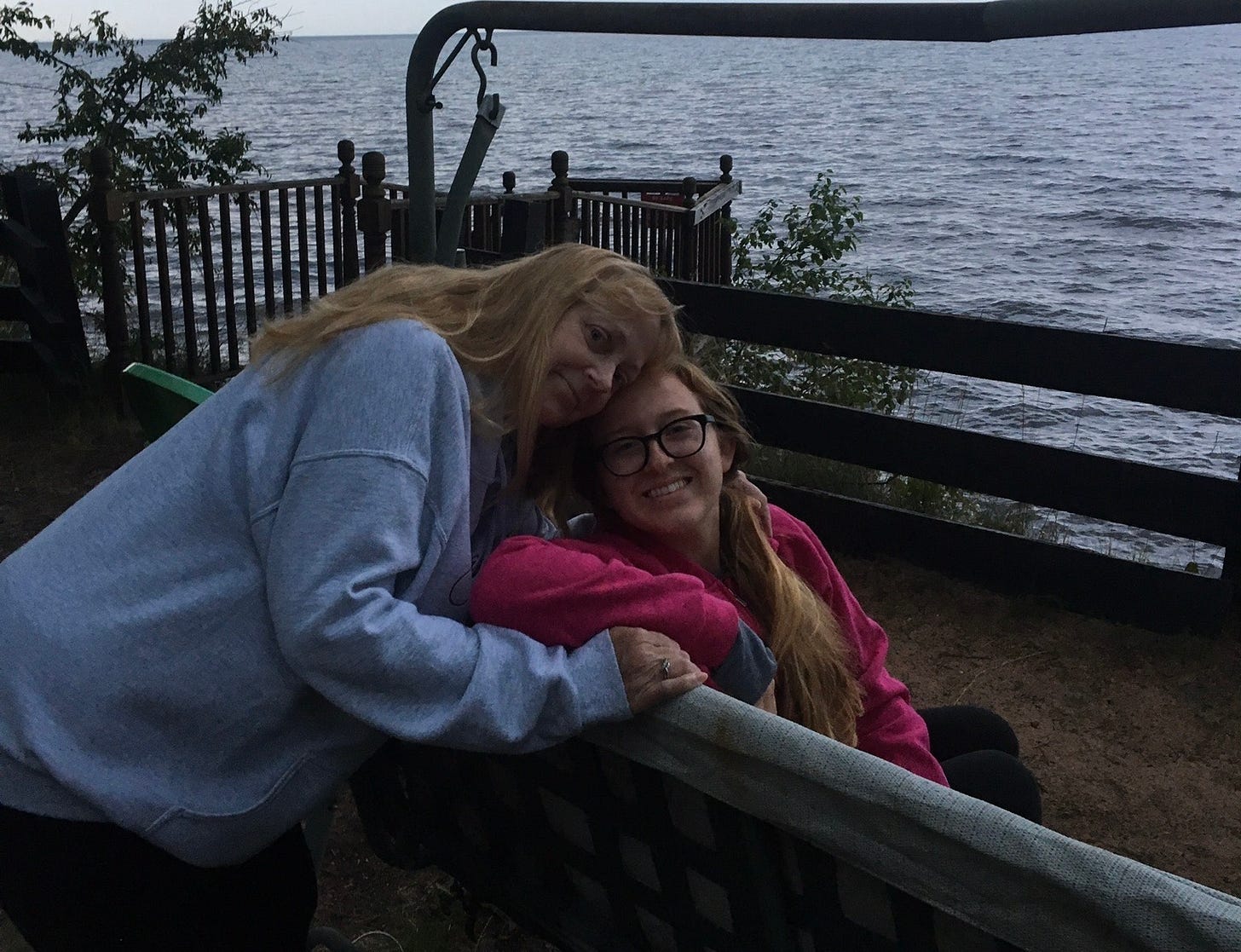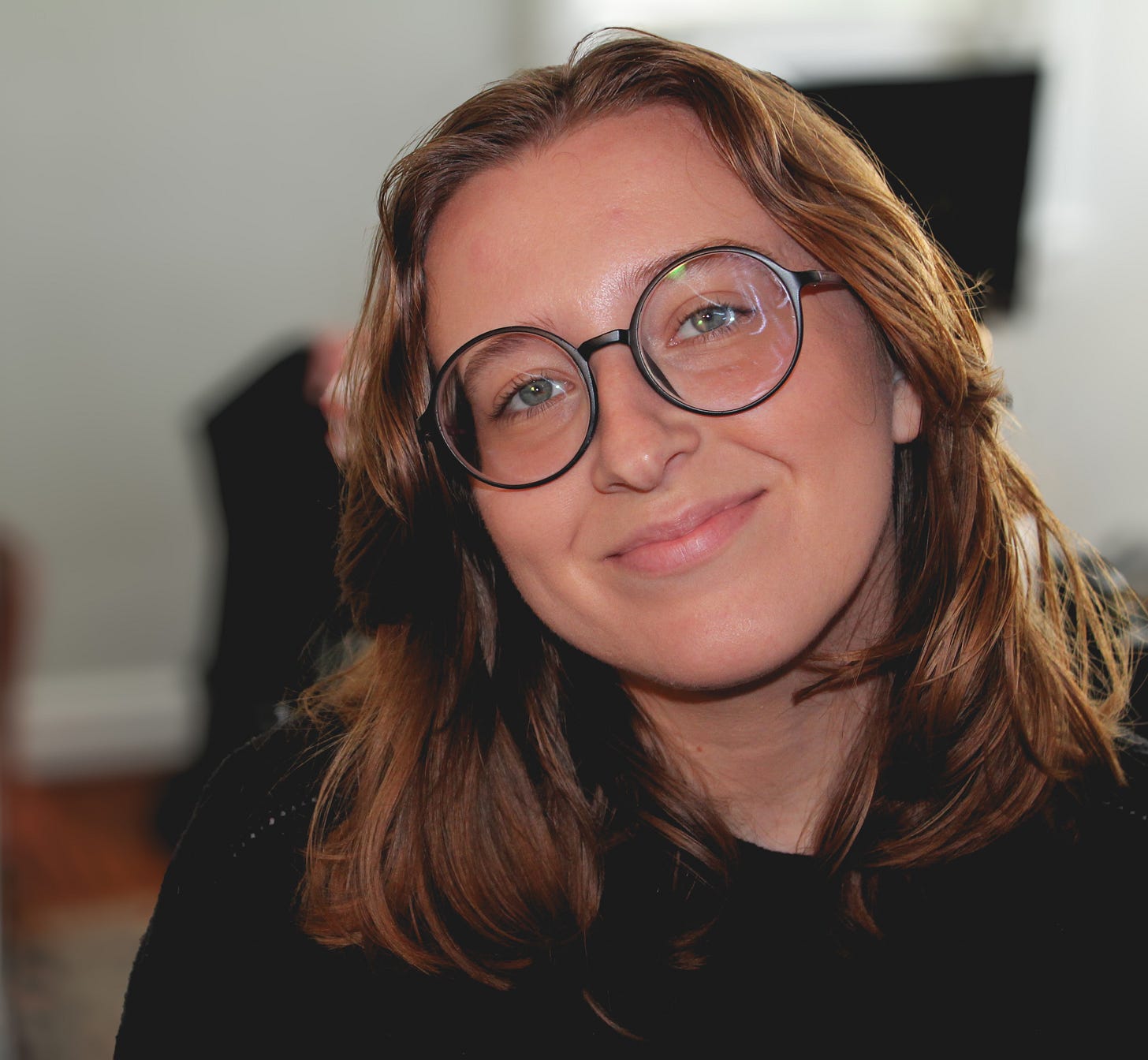Guest Post-Mortem: Should I Be More Sad That My Mother Won’t Be At My Wedding?
A Guest Post by Elle Warren
Summary
My mother died six years ago. I’m getting married in August, and I don’t feel devastated that she won’t be at my wedding. I don’t even feel particularly sad. And it’s not because I didn’t love her. It’s not because I don’t miss her. I’m not Jeanette McCurdy’s I’m Glad My Mom Died. My mother was warm and loving. Kind and patient. She was my closest relationship, my most trusted ally. When I first noticed the lack of sadness, I felt guilty and ashamed. At her funeral, standing before her open casket, I’d whispered, I’ll love you forever. I promise. Was my connection to her fading? What was this callousness? After months of contemplation, I uncovered why I wasn’t filled with sadness—and that it was okay not to be.
Background
Throughout the last year of being engaged and planning the wedding, people have asked me about grief. “How are you feeling?” they’ll say. And I respond with something like “I’ve been okay…” and freeze as I try to search for a response that is both true and expected.
Here’s the thing: I was not a little girl, or teenager, or young adult who dreamed of my wedding. I didn’t even picture it. It hasn’t been something I’ve looked forward to my whole life. I’d given little thought to marriage before falling in love with my fiancé. I never pictured my mother sitting in the front row, dabbing at her eyes. I never pictured her giving me “something borrowed.” So, there is no dream to grieve. Reality is not falling short of some long-held expectation.
But then there’s the fleshier, more tender truth. A couple months after she died, I was working as a restaurant hostess. After seating an elderly woman and her middle-aged daughter, tears filled my eyes: it hit me that my mother and I will never grow older together. Because I was 20 when she died, just barely an adult, there is so much of me that she will never know. Sometimes, this blockades my connection to her—how do you maintain a connection to someone who doesn’t know you? And this flows both ways. There are so many questions I never asked her. So much of her I didn’t get to know outside of being my mother.
Key Points
Queerness was something I started wondering about when I was 13. Wondering is a calm way to put what was actually a volatile almost-decade of torment. I was a nerve ending of classic Catholic shame and obsessive-compulsive disorder—a condition that desperately doubts everything while craving certainty. Three years after my mother died, in 2021, I came out after falling in love with a woman (the woman I will soon marry). I’d come out to myself a year and a half before, when I was living in Denver with queer roommates and found I enjoyed being flirted with by a lesbian who lived in the building.
The reason I went to Denver was because I was inconsolable with grief—and because my brother lived there and said I could crash with him as long as I wanted, which I did before getting my own place. I went because I was not a person; but a ghost of longing and denial. I was caught between two realities: the one with my mother and the one without. Every day came with panic attacks and doubt that I’d be able to do it all over again the next day. I needed to shock my system. I needed to throw myself into a new environment not to escape but to force my brain to accept that my life had been changed. To make a change that I had control over.
If I had not found myself in such a liberal city, 1,000 miles from the expectations of people who’d known me my whole life, in an apartment building with a lesbian who liked to flirt with me, I don’t know when—or if—queerness would have stopped being a torment.
I can’t imagine how my life would have gone without my mother’s death as a catalytic event. My life has grown around her absence, and I do not know that she would recognize me now. Even more confusing, I’m proud of the way my life has materialized. I like who I am.
And there’s this truth, the one that feels most tender: it haunts me that I can never know how she would react to my queerness. To me marrying a woman. My father has been supportive. I have no evidence to suggest that she wouldn’t have been. But do mothers have different expectations of their daughters? Would this aspect of me be so different from any aspect of her that it would be upsetting? I’m scared that she’d sit in the front row, uncomfortable and disappointed.
All these unknowns add up to a wall of numbness that protects me from the possibility of that disappointment.
What has been learned?
I’ve sat with those truths for some time now. I’ve listened as they spoke and reflected in the silence afterward. Loss is nuanced and holds the possibility for many things, including contradictory ones, to be true at once.
I can worry that my mother would not have embraced who I am—what’s more universal than the fear of the unknown?
I can also remember that she knew me better than anyone. Throughout my childhood and adolescence, while my father worked and my older siblings lived their lives increasingly outside of our home, it was her and I. Maybe my mother wouldn’t see the woman in front of her as foreign, but as someone who had returned to herself. After all, when I was a child, I kissed my neighborhood best friend (a girl) as often as I played hide-and-seek and caught bugs.
I can love who I became after my mother’s death. I can be grateful that I wound up here—openly queer, therapized, medicated, stable—and be unsure if and how I would have found my way otherwise.
I can also gutturally miss her and wish she were here. I can trust that I would have become who I am somehow, no matter what. I can recognize that for as much as her death shaped me, nothing shaped me more than her living.
I can be not particularly sad that my mother won’t be at my wedding.
I can recognize, too, that I might feel different on the day of—feelings are impermanent, fluid. I can know that a lack of sadness over her absence at my wedding is not the same as a lack of sadness that she isn’t alive.
Conclusion
As I hold space for all these truths to coexist, something softens. I feel that wall of numbness begin to lower. I feel my connection to her strengthen. I saw someone on TikTok leave an empty front-row seat at their wedding for their dead mother. Months ago, I would’ve thought that was corny, too “woo-woo” for me. Maybe I still do. But when I saw the clip, I smiled and considered the ways I want her there.
Recommendations
Good Luck, Babe! by Chappell Roan (enough said)
Sociopath, a memoir by Patric Gagne, PhD. This is the most recent book I finished, and it was a fascinating read about the author's experience as a sociopath.
French Press coffee. It tastes better than drip and is quicker than pour over.
Operation Olive Branch, a grassroots collective that connects the general public to verified mutual aid for Palestinians.
Elle Warren is poet-turned-essayist covering themes of, and intersections between, grief, queerness, obsessive-compulsive disorder, and other stuff she used to feel ashamed of. In her new pursuit of essay-writing, she’s been published in HuffPost and is excited for her work to find a home in Post-Mortem, too. A born midwesterner currently based in Chicago, along with her soon-to-be wife and three cats, she’s working on a memoir. Find her on Instagram at @ellewarrenwrites. For fans of poetry, get her chapbook, Come Back For a Little Bit, here.
Say hi to my new Managing Editor for Post-Mortem, Farah Faye! She is the host of the Scrappy Reading Series, and is an emerging writer living in Brooklyn, NY with her husband and cat. She holds an MFA in Creative Nonfiction from Spalding University and her work has appeared in Business Insider, Medium, and her Substack,
. You can find her on Instagram @whoisfarahfaye and @scrappyreadingseries.




Hi Elle,
I lost my father when I was a little over 30, and I can totally understand how you feel. It's hard to lose a parent when you are young, especially when you are close to them because you knew they will never be able to see your achievements, your happiness, console your griefs, and pick you up when you failed. However, I am happy that you have found someone whom you can grow old with and be able to support each others in every aspect of your life.
We all grief differently, and just because you didn't sob and in tear when your mother passed away, doesn't mean you don't love her and don't miss her. Sometimes, we have difficulty processing our feelings until later, and it's OK.
At the end of the day, however way you manage your feelings is OK.
Thank you for sharing you story, Elle. Grief in all its complexities follows us as those we love never leave our hearts. Congrats on your upcoming wedding!!